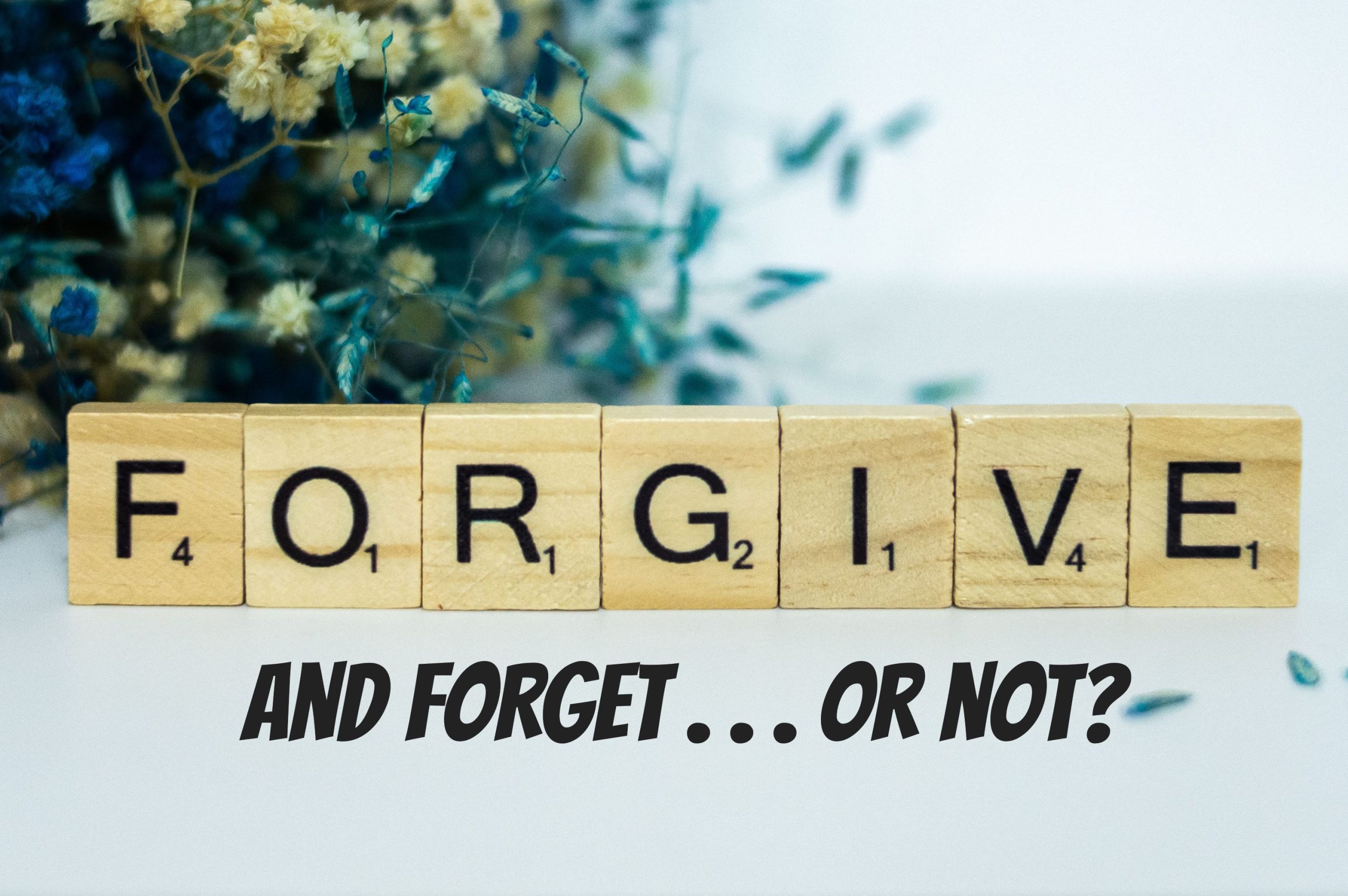Forgive and Forget . . . Or Not?
Forgive and forget. Forget and forgive. Joined like love and marriage or the proverbial horse and carriage. Forget and forgive. They’re even listed one right after the other in my dictionary. Forever joined together…or are they?
We want God to do both. And we’re glad when we believe He does.
We expect others to do both. And we’re glad when they say they do.
We’re asked to do both. And we realize that, while we may have forgotten where we put the car keys ten minutes ago, or whether we turned off the stove as we’re half-way to church, we can recount, down to the last gory detail, a hurt we received ten years ago, even as we claim the offender is forgiven. “I can forgive, but I can’t forget.” Some even say they can forgive others, but they can’t forgive themselves. Sound familiar? What happens when we can’t forgive and forget . . . especially ourselves?
Accepting Forgiveness Vertically
Forgiveness begins at the cross of Christ. Once we receive the gift of salvation offered to us in Jesus, we are adopted into His family (John 1:12). We also have the Father’s continued forgiveness and cleansing simply for the asking (1 John 1:9). So then why is it so difficult for us to accept and believe that we’re really forgiven? Why are we such easy prey for the hurtful reminders of our own past failures?
One reason for our difficulty is that we tend to view God by our own standards. Since we so vividly remember our own sins, we presume that He will, too. We don’t take the Father at His word when He tells us that He forgives our wickedness and won’t remember our sins (Jeremiah 31:34b). Why? Because we still remember. Frequently, our most vociferous critic is the face we see in the mirror.
Another reason it’s so difficult for us to believe we are truly forgiven is that we know our own tendency to revert to sin. As we’ve already seen, it’s so easy to relate to Paul when he says, “I do the evil I don’t want to do, and don’t do the good I want to do” (Romans 7:19). How foolish we are in attempting to hide from God the fact that we’re human! Do we somehow think that the Father doesn’t already know that? He tells us exactly what we’re made of: “for He knows how we are formed, He remembers that we are dust” (Psalm 103:14). He knows this…and still He promises to forgive. We need only come to Him with a broken and contrite heart (Psalm 51:17). He’ll do the rest.
A third reason for our difficulty in accepting God’s full forgiveness without continually beating ourselves up is that we live with the consequences of past sin, and interpret those consequences as the absence of the Father’s forgiveness. Remember the story of David and Bathsheba? David committed adultery and murder, confessing both as sin when confronted by the prophet Nathan (2 Sam.12:13). Nathan reassured him that his sin had been taken away (forgiveness), but stated that the baby born of their union would die (consequence). David’s reaction? He understood the difference between forgiveness and consequences, accepting both.
Lastly, too many of us confuse discipline with punishment. We may have grown up in families where punishment meted out in anger was labeled discipline. The result is that we view God the Father as if He possesses the same faults as our earthly parents. We then compound the problem by repetition of this same behavior with our own children. The answer? Our compassionate Father reminds us that whom He loves, He rebukes and disciplines (Revelation 3:19), but always with a love that casts out all fear (1 John 4:18).
Accepting Forgiveness Personally
Again and again, God reassures us of His love and forgiveness. He uses vivid descriptions to help us understand and appreciate the permanence of His forgiveness, and yet still we doubt. He tells us:
“As far as the east is from the west, so far has he removed our transgressions from us” (Psalm 103:12)
“…though your sins are like scarlet, they shall be as white as snow.” (Isaiah 1:18)
How many different ways has the Father described our forgiveness, and yet we continue to feel condemned in spite of His word to the contrary: “There is now therefore no condemnation for those who are in Christ Jesus…” (Romans 8:1).
So if He no longer condemns us, let’s stop condemning ourselves. Let’s move forward in forgiveness, offering it to others and accepting it for ourselves.






0 Comments